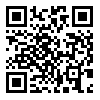مجله رویش روانشناسی از دادن گواهیهای کاغذی معذور است. لطفا تقاضا نکنید. همه گواهی ها در صفحه شخصی کاربران موجود است.
year 10, Issue 11 (Spring 2022 2022)
Rooyesh 2022, 10(11): 279-290 |
Back to browse issues page
Download citation:
BibTeX | RIS | EndNote | Medlars | ProCite | Reference Manager | RefWorks
Send citation to:



BibTeX | RIS | EndNote | Medlars | ProCite | Reference Manager | RefWorks
Send citation to:
Alizadeh T, Karimzadeh S, Arab Mohammadi H. (2022). Explaining the psychosocial facilitators factors in the rehabilitation of injured athletes: A qualitative study. Rooyesh. 10(11), 279-290.
URL: http://frooyesh.ir/article-1-3283-en.html
URL: http://frooyesh.ir/article-1-3283-en.html
1- Ph.D. Student Rehabilitation counseling, Department of Counseling, University of Social Welfare and Rehabilitation Sciences, Tehran, Iran.
2- Master of Academic Counseling, Faculty of Educational Sciences and Psychology, Shahid Beheshti University, Tehran, Iran.
3- Master of Sports Psychology, Faculty of Psychology and Educational Sciences, Allameh Tabatabaei University, Tehran, Iran. ,Habib.sportpsy@gmail.com
2- Master of Academic Counseling, Faculty of Educational Sciences and Psychology, Shahid Beheshti University, Tehran, Iran.
3- Master of Sports Psychology, Faculty of Psychology and Educational Sciences, Allameh Tabatabaei University, Tehran, Iran. ,
Abstract: (1629 Views)
Sports injuries are one of the common crises that have a significant impact on the quality of life of athletes. Athletes do not show the same psychological response to sports injuries, and these reactions are influenced by several factors. This study aimed to identify psychosocial facilitators in the rehabilitation of injured athletes. Statistical Society consisted of all athletes injured in sports activities in Tehran in 1399. 17 participants were selected using purposive sampling with maximum diversity. Data were collected through semi-structured interviews and analyzed using conventional content analysis. After conducting the interviews, 200 initial codes were extracted, and after studying the text, classes were identified by comparing the codes. Findings of this study showed that psychosocial facilitators in returning to the game included two categories of receiving psychosocial support and personality traits. The appropriate psychosocial support class had three subcategories, Including family support, team support, and contact with a psychologist. The next category of psychosocial facilitators in returning to the game was personality traits, which included five categories: self-efficacy, stability, self-compassion, acceptance, and positivity. The results of this study showed that a combination of personality, environmental and social factors related to the mind can facilitate the process of returning to the game. Recognition of these factors, which is appropriate to the social context and real experience of athletes, can be of great use to coaches, sports psychologists and the design of psychosocial rehabilitation packages for these individuals, that is, to help the rehabilitation and recovery process by strengthening facilitators.
Keywords: Facilitator factors, psychosocial, rehabilitation, injured athletes, Conventionat Content Analysis.
Type of Article: Research |
Subject:
Clinical Psychology
Received: 2021/10/24 | Accepted: 2021/12/1 | ePublished: 2022/01/30
Received: 2021/10/24 | Accepted: 2021/12/1 | ePublished: 2022/01/30
Send email to the article author
| Rights and permissions | |
 |
This work is licensed under a Creative Commons Attribution-NonCommercial 4.0 International License. |







